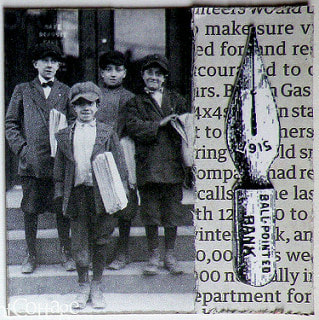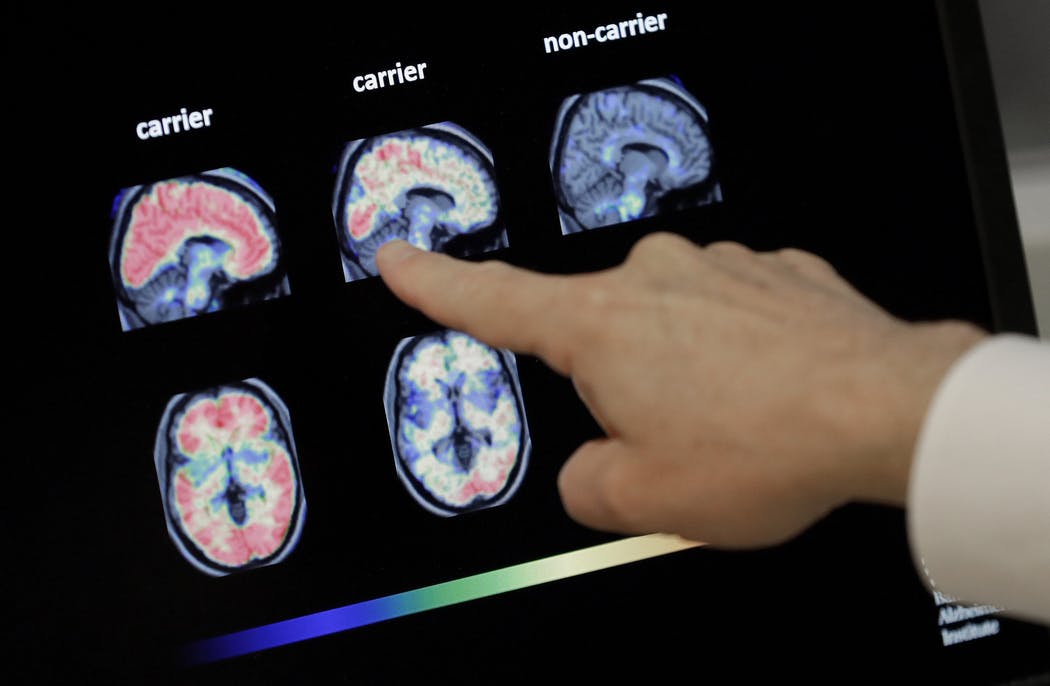| SCIENCE 56457568 In stunning reversal, Alzheimer's therapy may actually work Seven months after clinical trials for aducanumab were halted, a new analysis suggests it was actually effective. By Tara Bahrampour Washington Post NOVEMBER 8, 2019 — 4:38AM In what could be a landmark step, Biogen said it will seek approval for a drug for use for early Alzheimer’s disease. |
Seven months after clinical trials for a promising Alzheimer’s drug were halted and the treatment was declared a failure, a new analysis suggests it was actually effective.
The astonishing reversal on aducanumab, an antibody therapy which targets a protein called amyloid beta that builds up in the brain, comes after new data from the discontinued studies showed that at high doses the drug reduced cognitive decline in patients with early Alzheimer’s.
“It could be a game-changer for the field,” said Rebecca Edelmayer, director of scientific engagement at the Alzheimer’s Association. “It could be one of the first disease-modifying therapies approved for Alzheimer’s disease.”
An estimated 5.7 million Americans 65 and older have Alzheimer’s. A handful of drugs approved by the Food and Drug Administration can alleviate some symptoms, but in the past 16 years no new drugs have been approved for the disease.
That may now change.
The drugmaker, Biogen, said patients receiving aducanumab experienced “significant benefits on measures of cognition and function such as memory, orientation and language.” They also saw benefits in conducting personal finances, performing household chores and traveling independently outside the home.
The company stopped the trials in March after an independent board said the drug offered little hope of success — news that baffled scientists who’d seen encouraging early results and dealt a blow to patients. Biogen studied aducanumab at more than 350 trial sites with more than 3,000 patients. Each needed to be told that it had failed.
“There was a devastating feeling,” said Samantha Budd Haeberlein, head of clinical development for Alzheimer’s disease at Biogen. “The phase 1 was perfect.”
After the futility analysis, Biogen told 20 of its scientists to comb the trial data for answers. The team eventually expanded to 49. “I thought we must have been missing something,” said Biogen Chief Medical Officer Al Sandrock.
The initial analysis appeared to confirm the decision to halt the trials. Then more data rolled in. By June, one of the studies turned positive. The other was still negative.
Haeberlein said her team was working 15-hour days and sometimes weekends. As they pored over the data, a picture emerged that seemed to explain the discordant results.
Biogen changed the plan for the trials twice: once to temporarily suspend treatment for patients who experienced side effects, and once to allow patients with a common genetic variant to get a higher dose. But the changes affected the two trials unequally.
The second trial had more patients getting consistent, high-dose treatment. It was the second trial where aducanumab clearly slowed the disease, while the first one, with fewer patients on the highest dose, failed to show an effect.
Given the mixed results, what lies ahead is uncertain. Biogen said it plans to pursue federal approval in early 2020.
Ronald Petersen, director of the Mayo Clinic Alzheimer’s disease Research Center who consulted with Biogen but was not involved in the studies, called the news “a bright light” after “so many failures in the field.” But he cautioned that it is not clear the FDA will approve the drug. With few drugs on the market, the FDA might be pressured to approve the therapy on the basis of one positive trial — instead of the traditional two, researchers said.
If approved, aducanumab would bolster the theory that treatments that remove or reduce amyloid beta are an effective approach. Other therapies now in the clinical trial pipeline include those that address inflammation, the immune system, blood vessels and synaptic cell health.
“We need to continue these different approaches because we think that a treatment is potentially going to be complex,” Edelmayer said.
Bloomberg



 RSS Feed
RSS Feed